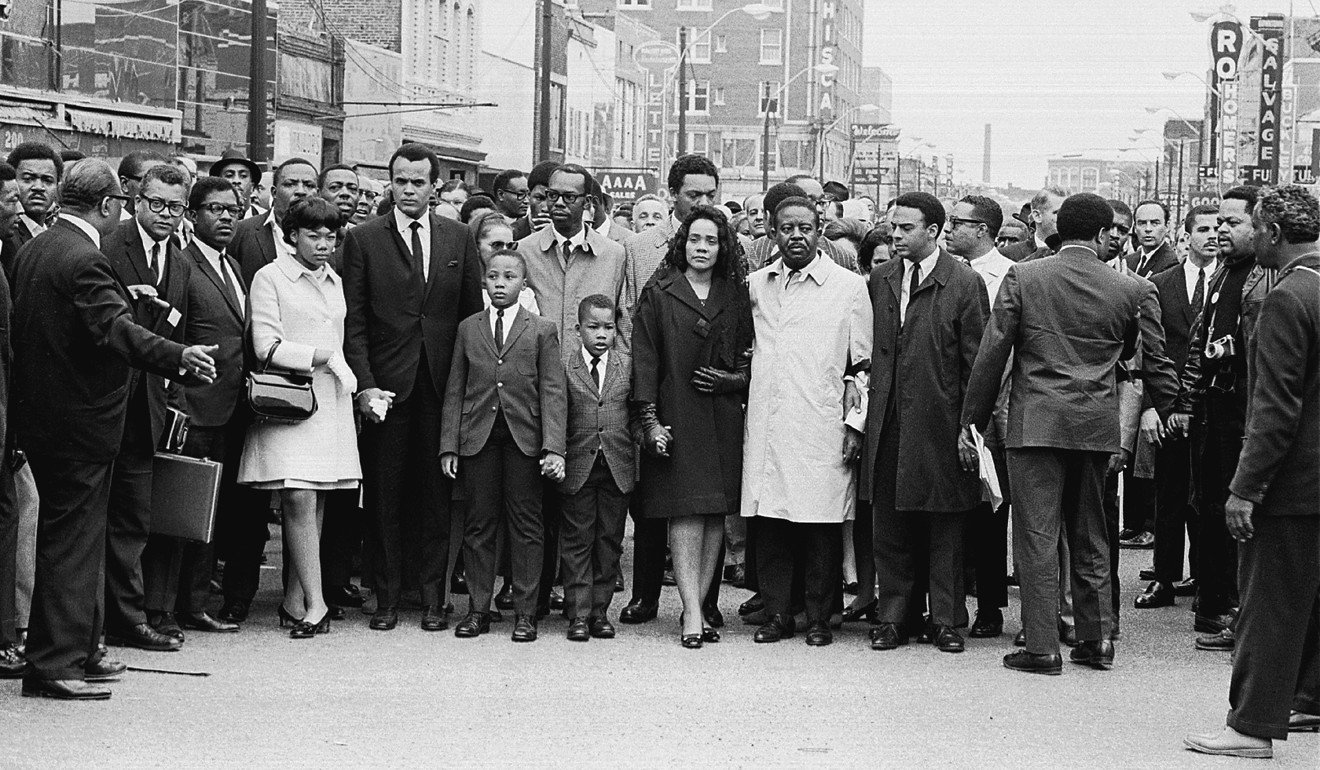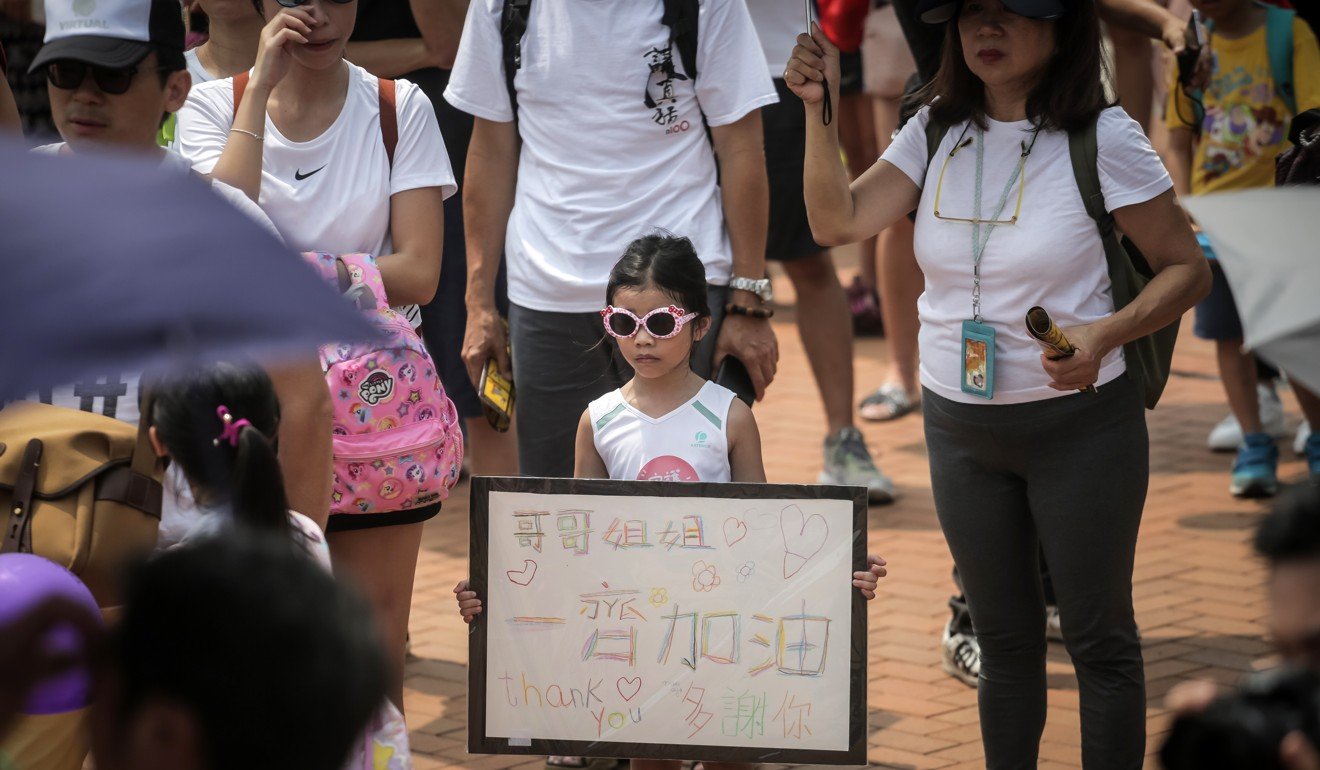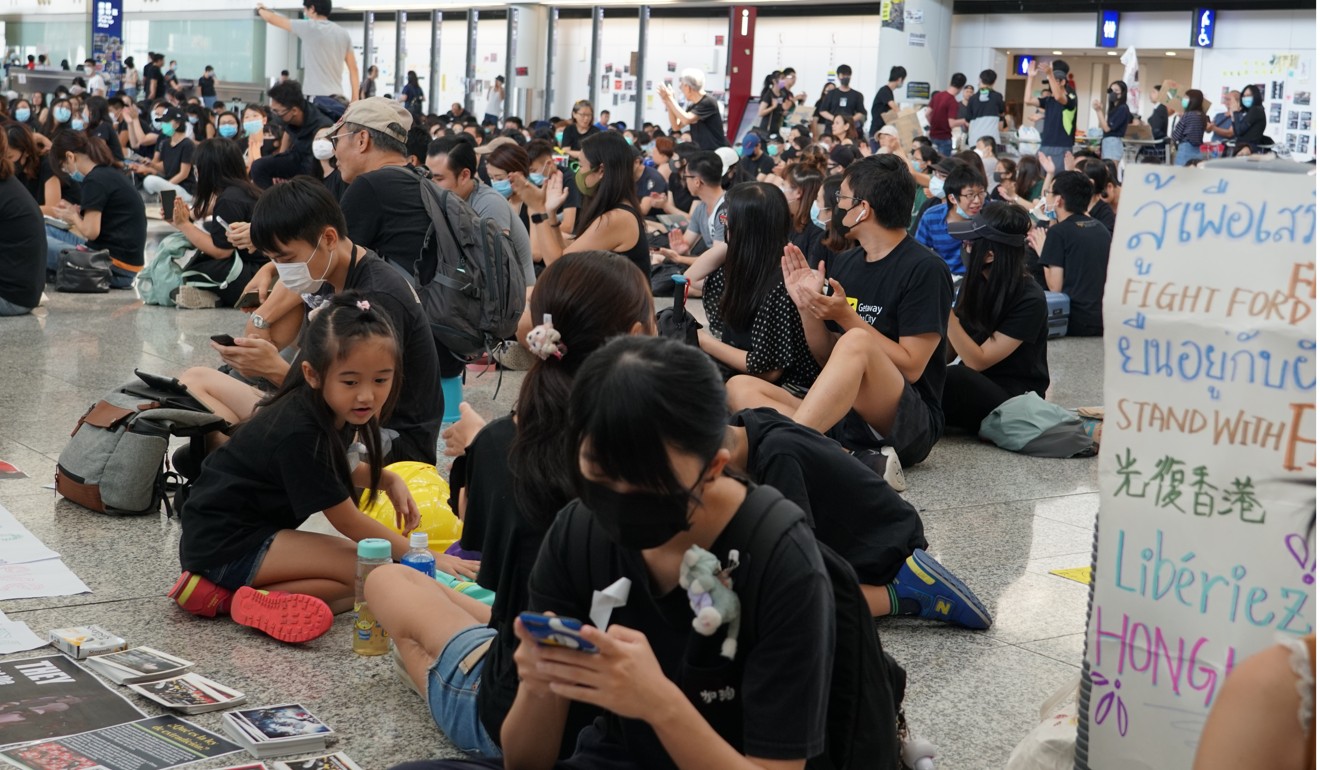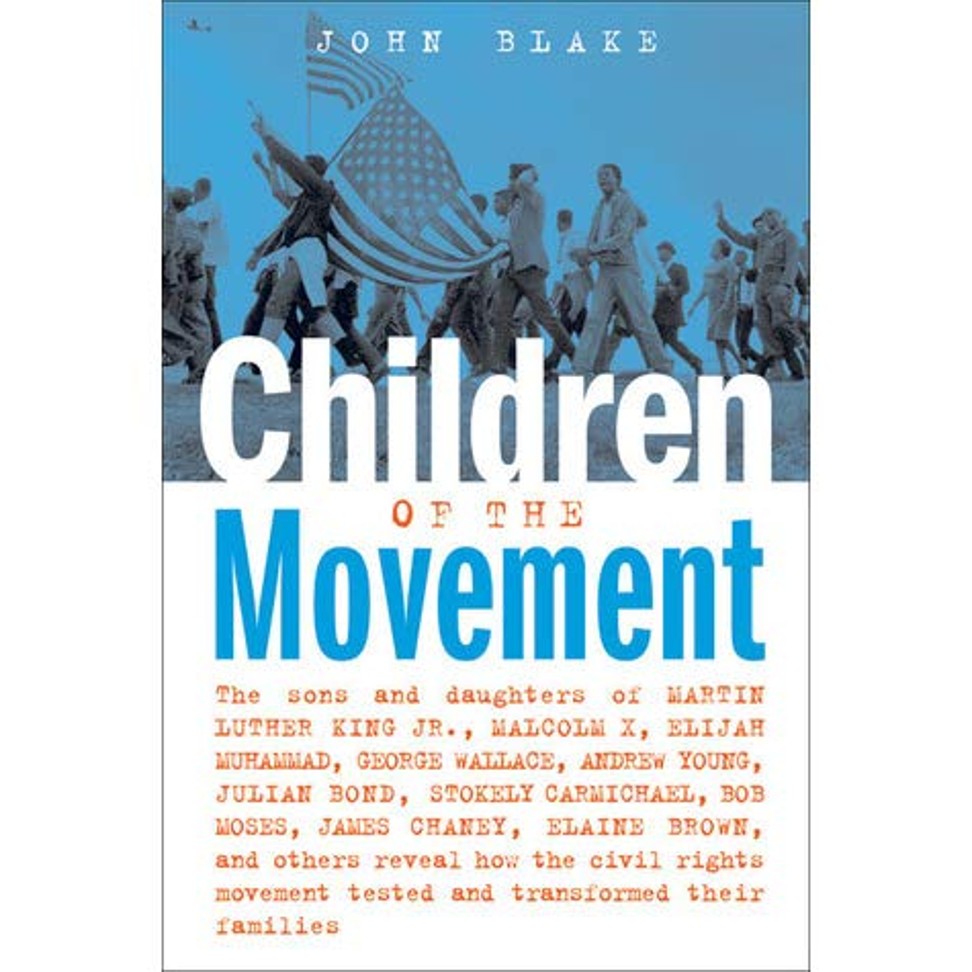
How parents and teachers’ actions and attitudes towards protests affect children
- Whether we are pro or anti, the way we feel, act and speak about the protests will affect our children in many ways
- As long as we don’t advocate violence, we should enable our children to have a voice and a social conscience

Editor's note: This article has been updated to protect a source who had been inadvertently identified.
As parents in Hong Kong protest for their children’s future, they also need to consider how their actions influence and shape their children personalities.
The media has been flooded with images of children spending Sundays on their father’s shoulders, on the well-trodden march from Victoria Park to Central district, and spending holidays at Chater Garden listening to the strident demands of their parents.
Is it any surprise that as the protests continued relentlessly, there were growing numbers of children arrested or injured?

In his 2004 book Children of the Movement, John Blake profiles 24 of the adult children of the most recognisable figures in the US civil rights movement. Children of rigorous activists frequently use the words “anxiety”, “insecurity” and “no communication”. Brown writes: “A large number of them [adult children of activists] are emotionally distant from their parents who, they say, are more suited for protest than parenthood.”
The statistics on anxiety and post-traumatic stress disorder among adults and children in Hong Kong are also on the rise, media reports have shown.

Parenting involves instilling in our children the belief that they as an individual have a voice, and that their opinion matters. The goals students should strive towards should not be just academic or career oriented. Children should experience the sense of fulfilment and purpose for issues greater than themselves. Campaigning to engender political or social change gives students a sense of belonging to their community.
Furthermore, “children involved in civic engagement learn key life skills such as teamwork, public speaking and patience, since many of the things we advocate for take time to change”, says Lina Acosta Sandaal, a family therapist in Miami.

While it’s up to us as grown-ups to empower our children to make their voices heard, it is also up to us parents and teachers to model the behaviours we wish our children and students to embody. As we support violence and intolerance towards the opinions of others, we need to always consider how our world view is influencing and shaping and that of our children.
US researcher Michael S. Robbins writes extensively on family systems theory that assumes reciprocal as opposed to linear causal explanations for family dynamics. It offers a useful perspective from which to view parenting behaviour to understand what shapes it, and to explain its complex relationship to child outcomes. It states that an evolving set of rules influences how a family operates. These rules include those that establish routines, regulate behaviour, and offer legitimate emotional support and expression.

As the situation in Hong Kong evolves, we parents need to deliberately regulate our behaviours, as they determine the climate within our homes. It is a facile explanation that justifies behaviour by the emotions one experiences. Any justification of the violence and destruction of property that the rioters engage in, by the emotional frustration felt towards government agencies in Hong Kong, only belittles us human beings. Man, in the final analysis, is a thinking animal and it is this ability that sets us apart from other species in the animal kingdom.
Children involved in civic engagement learn key life skills such as teamwork, public speaking and patience, since many of the things we advocate for take time to change
We need to teach our children that we can choose our actions and engage in behaviours independently of the emotions we experience. We can be activists and voice our opinions on the issues we feel strongly about. We have the power to engender change. Those behaviours don’t need to violent and intolerant of other individuals in our community.
We grown-ups need to be reminded of the words of American businesswoman Mary Maxwell Gates, mother of Bill Gates: “What matters is not what you get, not even that you give, but what you become.”
Who are the people we want our students to be is as, if not more important than, the world we want to leave them. And we as parents and educators need to model the behaviours we want to instil in our children. Because those behaviours will shape the individual they will become.
Anjali Hazari is a retired international school biology teacher who has taught for three decades in Hong Kong. She continues to tutor and write extensively on education policy and practice.